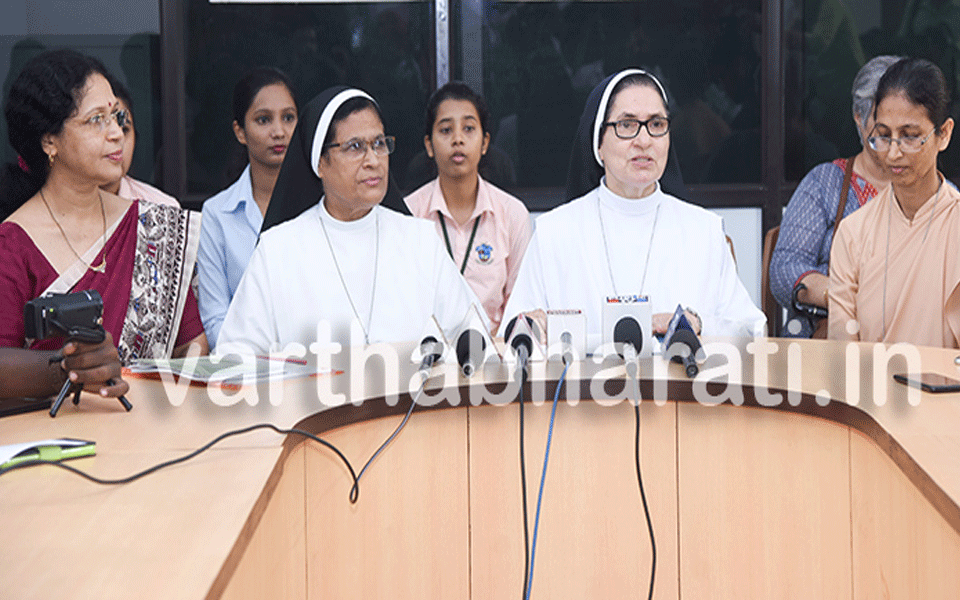Mangaluru: Vice President of St Agnes College Student Association has said that she received a threat call from abroad for exiting the WhatsApp group 'Justice for Scarf & Namaz.'
Speaking at a press conference called by the college principal here on Friday regarding the scarf issue that is going on over the past five days at St. Agnes College, Naureen said that she was added to this WhatsApp group. "I did not respond in any way to the scarf controversy. Besides, I came out of the group amidst discussions were in place. Meanwhile, I got an anonymous threat call from abroad," she said.
Speaking at the occasion, College Principal Dr. M. Jeswina said "no professor of the college pulled off any student's scarf. It has been instructed not to wear the scarf inside the classroom. But, there is no restriction in wearing a scarf or burqa inside the campus. A student of the college Fatima Anees, who earlier spoke to media in front of the college, attended all the classes from next day wearing the uniform set by the college. It has been instructed to the girls, who protested on that day, to clarify in writing within three days in the presence of their parents. We have not taken signatures of any students on blank papers," she clarified.
Anees, the father of Fatima Anees, said that the scarf controversy could be solved by the college administration, principal, students, and parents. It is not right to create a controversy outside the college.
Secretary Dr. Maria Roopa, Vice Principal Dr. Venice, Registrar Charles Stani Paisa, Disciplinary Committee Coordinator Dr. Devi Prabha Alva, staff member Neena, Old Student Nayana and others were present.



Let the Truth be known. If you read VB and like VB, please be a VB Supporter and Help us deliver the Truth to one and all.
Dubai: Smoke was seen rising from an area near the United States Consulate in Dubai, according to witness accounts cited by Reuters.
There was no immediate official confirmation on the extent of damage or whether there were any casualties in the incident.
Earlier, the US embassy in Riyadh, Saudi Arabia’s capital, was also attacked. Authorities reported damage to the premises, but no casualties were recorded.
The developments come amid heightened tensions in the region, with Iran continuing to target US interests in the Middle East following deadly attacks launched on Saturday by Israel and the United States.
Near US embassy in Dubai pic.twitter.com/z5VTZNVxNO
— Sahil Shah (@thesahilsshah) March 3, 2026





